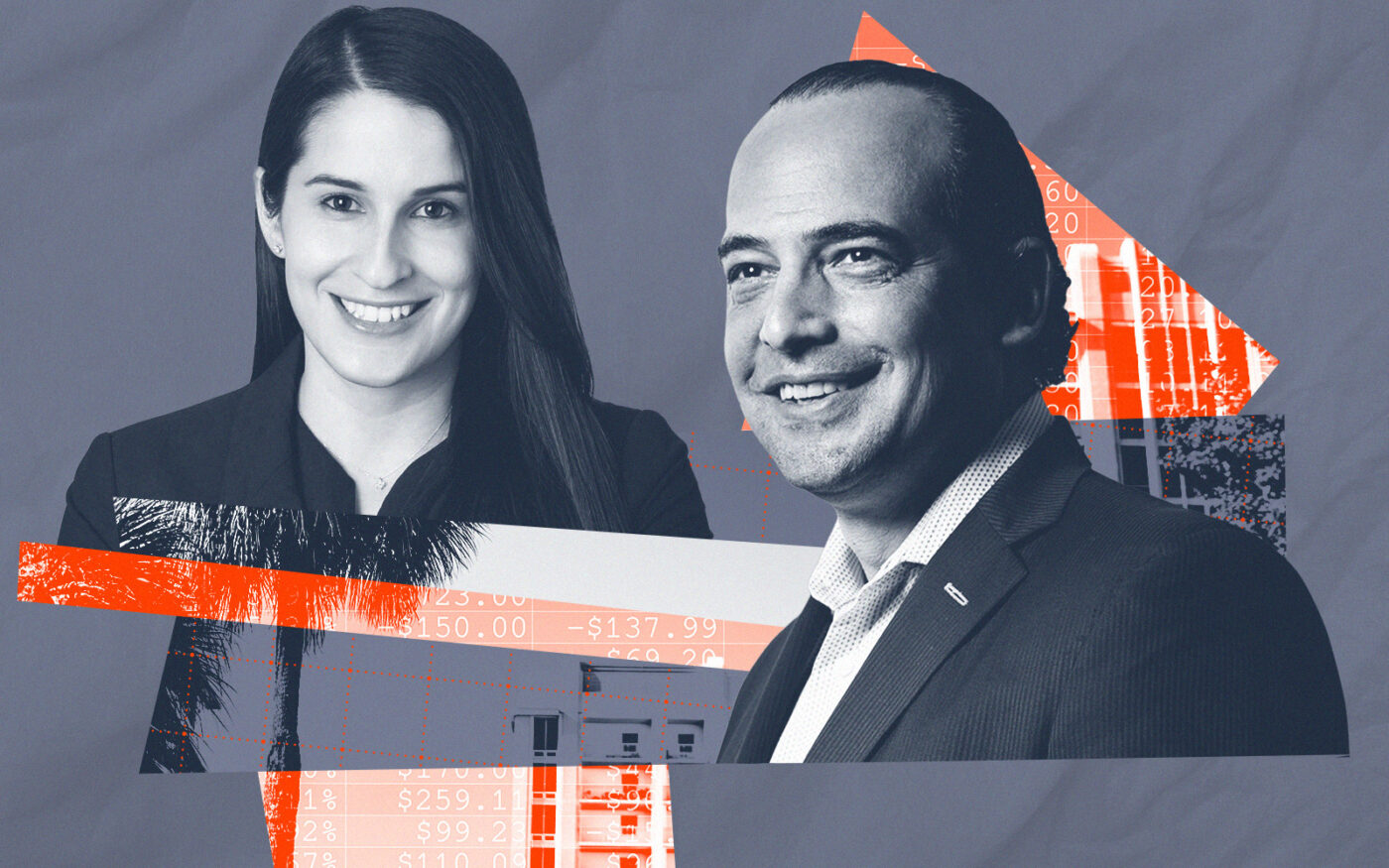 “Existential urgency”: Housing crisis clouds South Florida, expert says
“Existential urgency”: Housing crisis clouds South Florida, expert says
“Office is a dirty word right now”: Buildings outside Brickell, downtown West Palm in trouble, economist says
CBRE’s Spencer Levy says banks’ balance sheets are clogged with too many such commercial loans

South Florida offices benefitted from business in-migration, leading to deafening hype over the commercial asset class’ health. But prosperity has been restricted to top buildings in prime areas.
In downtown West Palm Beach, “they are getting the highest rents in Florida. Some of the highest rents in the country are in Brickell. But that’s the best of [buildings] in the best of submarkets,” said Spencer Levy, a CBRE economist. “Everything that’s one ring outside of that, that’s where the trouble begins.”
Even Class A buildings with maturing loans will have a hard time refinancing, Levy added during his economic forecast presentation at a Commercial Real Estate Women, Miami event in Coconut Grove on Friday.
Levy’s remarks come amid revelations that run counter to the common narrative that South Florida office real estate is isolated from the troubles plaguing markets elsewhere. According to CompStak statistics, tech leases have been on the decline since 2021, and the pipeline of financial service firms that rushed to the tri-county region is tapped out. Both industries were considered the darlings of the market boom that ensued in late 2020.
During his keynote address, Levy also touched on interest rates, commercial real estate fundamentals and why Wall Street is a bit more pessimistic than it should be. To help him prove his points, he interspersed portions of rock songs throughout his presentation.
Early on during his address, he played Tom Petty and the Heartbreakers’ “The Waiting.”
“So why is the waiting the hardest part?” Levy asked. In the real estate industry, “we are all waiting for interest rates to come down.”
After aggressive hikes since the spring of 2022, the Fed held rates steady in December and signaled cuts are coming this year.
“Now, we are waiting for the next bump down. Once we see that second pivot, we are going to party like it’s 1999,” Levy said, referring to Prince’s hit single.
The quick interest rate hikes, coupled with a post-2020 leasing slowdown and increased vacancies, has spelled trouble for office lenders.
“The biggest clog is too many office loans on too many banks’ balance sheets that they can’t clear,” Levy said. “The bad news is we are now at peak illiquidity.”
Wall Street’s predictions on the degree of rate declines are actually more pessimistic than what reality might be this year, Levy said. Wall Street has an incentive to project less of a drop because this allows it to keep the cost of hedges, such as rate caps, high. (The cost of caps increases when interest rates are high.)
A client of Levy’s that owns $450 million of multifamily real estate in the South bought an interest rate hedge in 2019 for $500,000. As the cap was coming due in March, it cost $25 million to renew it, Levy said.
“So what did we do? We stretched the Freddie Mac loan, and then we brought in $80 million of preferred equity. My client lost $10 million, and they were hugging me like it was the greatest thing ever because they didn’t lose $25 million,” Levy said. “Wall Street has a built-in incentive for being pessimistic, so they can charge you $25 million for a hedge.”
Economic data shows that the average consumer is running out of funds, meaning inflation will calm, and the Fed will drop rates, he said. Plus, the presidential election also will play a role in Fed Chair Jerome Powell’s decision.
“Powell will start lowering rates so his hands are clean, at least on that front, because he doesn’t want to be blamed for anything that happens at the election,” Levy said.
Two asset classes truly prospering are hospitality and retail, due to a change in consumer demands.
“Why? Because of two acronyms: FOMO and YOLO,” Levy said. “People are spending like crazy.”
But data on valuations of other property types could be misleading because they are skewed due to a decline in investment sales, Levy pointed out. One data provider shows industrial real estate values down by about 2 percent, which he said is “wrong.”
“How can the data show that industrial is only down by a couple of percent? Because the only stuff that is actually trading is the best stuff or stuff with seller financing or assumable financing,” Levy said. “Even here in Florida, there are some places where vacant industrial is having trouble attracting new tenants.”
The same goes for offices. “Office is a dirty word right now,” he added during a question-and-answer session.
That, however, opens the door for capitalized investors seeking to scoop up struggling properties at a discount.
“It’s an intergenerational opportunity today,” Levy said, “if you are prepared to go in all cash for these asset types.”
Read more
 “Existential urgency”: Housing crisis clouds South Florida, expert says
“Existential urgency”: Housing crisis clouds South Florida, expert says




